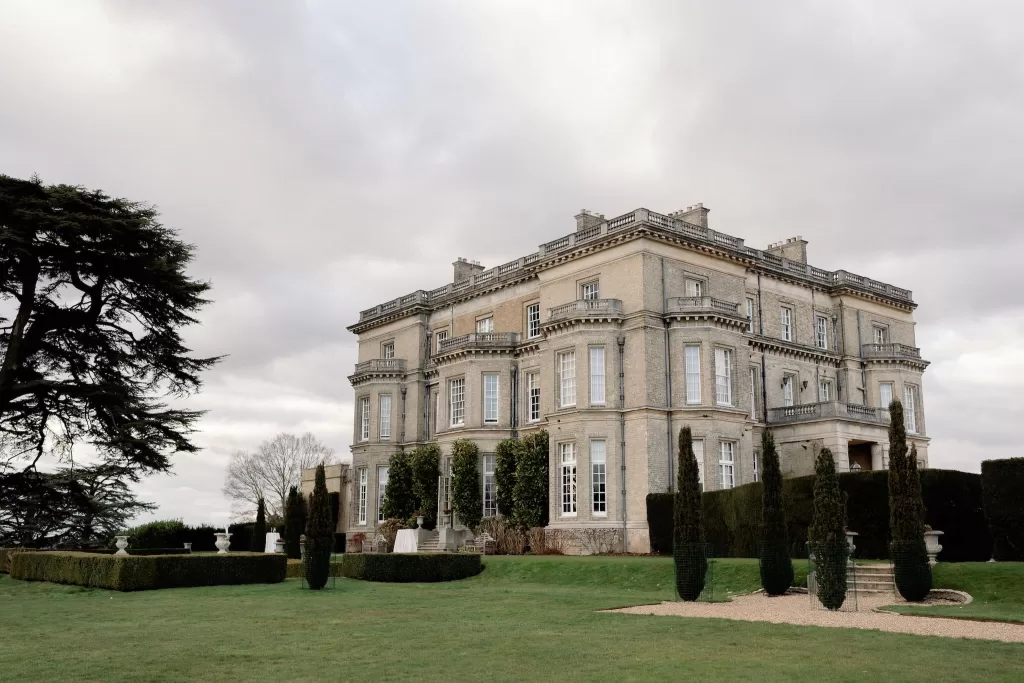
How to Choose the Perfect Destination Wedding Venue: A Comprehensive Guide
Planning your destination wedding is an incredibly exciting and once in a lifetime journey (hopefully!), and choosing the right venue is arguably the most important decision you’ll have to make along the way.
Selecting that perfect location and venue can feel overwhelming; with so many stunning options available, you want to make a choice that compliments your style and vibe, fits your budget, and has all the facilities and amenities you and your guests need to have an unforgettable experience.
This comprehensive guide will walk you through the key stages of selecting your destination wedding venue, ensuring your dream becomes reality.

1. Define Your Vision
Maybe you’ve always had a clear vision of what you want your special day to be like, maybe you’ve never really thought too much about it until now. Well this is your time to bring your love story and deepest wishes to life.
The Vision: Start by picturing in your mind the wedding of your dreams. What’s the vibe? Can you hear the gentle waves of a tropical beach, are you nestled in the rustic charm of a countryside estate, or are you taking in the elegance of a luxurious chateaux?
Consider the architecture at the venue, the natural surroundings and landscape, and the overall atmosphere that you want to create.
As you visualise, think about locations or styles that might hold personal or cultural significance to you and your partner. Is there a place you’ve always dreamt of visiting? Perhaps there’s a location that reflects your heritage or a destination where you both experienced something special together. Choosing a venue with emotional resonance can add an extra layer of magic and meaning to your wedding day.

Create a Mood Board: Once you can picture your perfect day in your mind, put those ideas into a tangible form – create a mood board, either digitally or physically. Scour online resources like Pinterest, Instagram and Marry the World’s listing galleries to include photos of venues, scenery and photographs from other weddings which are similar to your vision. This will help you clarify your vision and narrow down your options before contacting venues. You can continue to build upon this mood board as your wedding planning continues.
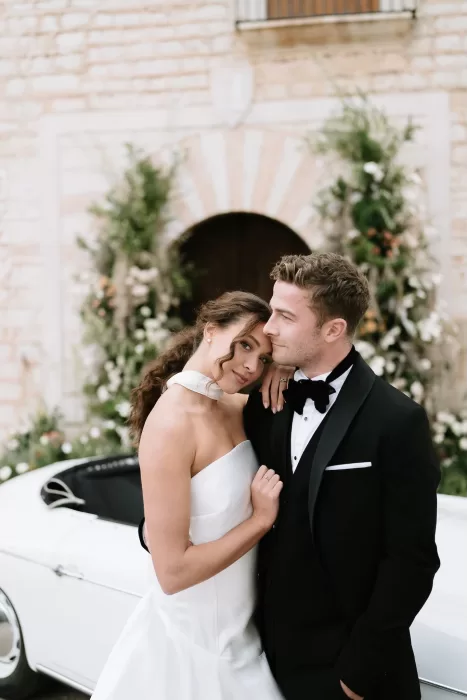
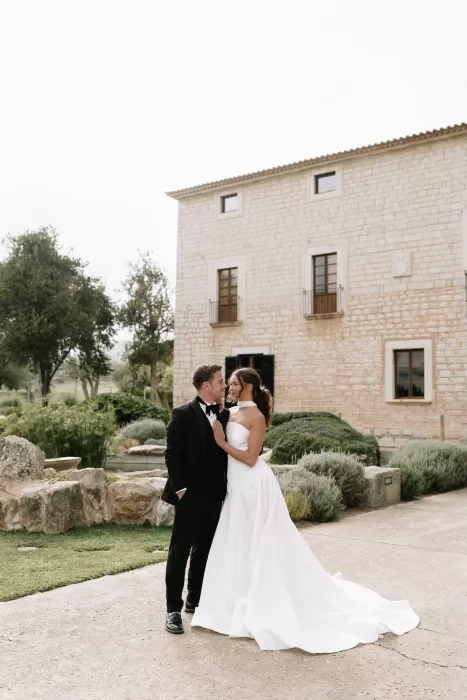
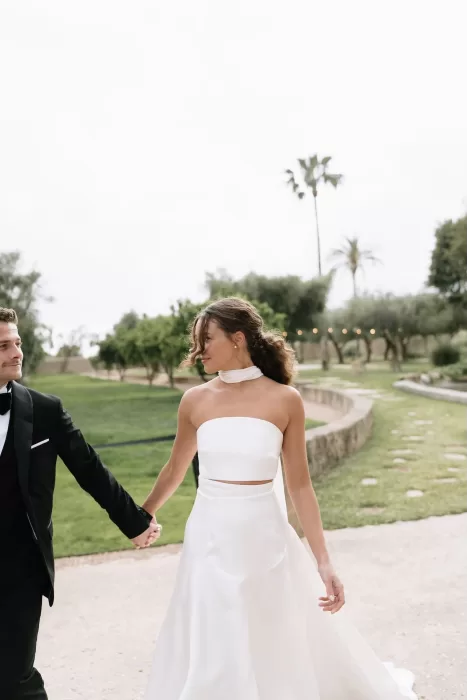
Non-Negotiables: Finally, decide on the elements of your vision that are non-negotiable in terms of what a venue can offer. Is it the breathtaking views, the capacity of guests you can invite, or the ability to have an outdoor ceremony? Again, getting clear on any must-have venue features will help you stay focused when searching for potential venues and simply the process.
2. Set a Realistic Budget

Destination weddings venues can range from the surprisingly affordable to the extremely extravagant. It’s easy to get swept up in the excitement of planning that perfect picturesque wedding, but it’s crucial to set a budget that is both realistic and within your means. Remember, the venue is just one part of your wedding budget, and it’s important to avoid the stress of over-stretching yourselves financially.
What’s Your Number?: Begin by setting a clear overall budget that covers all aspects of your wedding, not just the venue. This will need to cover all the main costs like travel, accommodation, catering, photography, entertainment, but also the smaller costs like invites, licence and legal fees, and the cake – trust me, they all add up!
When setting your budget, remember you may still have lots of time to save heavily for the big day. It’s all quite common to receive contributions towards your costs from loved ones as well as smaller gifts from guests on your special day.
Foreign Currency: If the country you are travelling to uses a different currency, don’t forget to factor in exchange rates, which can fluctuate over time and affect your wedding costs. Paying up front will remove this risk, but equally paying after booking could result in the cost being less if exchange rates move favourably. Additionally, be sure to ask the venue about any local taxes, service charges, and other fees that might not be included in the initial quote.
Small Costs Add Up: Venue prices often cover the basics, but there are sometimes additional costs that can creep in. For example, consider charges for lighting, sound systems, furniture rental, or décor upgrades. Even seemingly small expenses like corkage fees or cake-cutting charges can add up. Ask the venue for a comprehensive list of all potential costs upfront, so there are no surprises later.
Contingency Budget: Set aside a contingency fund, typically 10-15% of your total budget. Whether it’s unforeseen costs, last-minute changes or currency fluctuations, having a buffer can help you manage any unforeseen costs without financial strain and stress.
Package Deals: Some venues offer all-inclusive packages that can simplify budgeting and reduce the risk of unexpected costs. These packages often include accommodation, meals, and even certain wedding services. While these might seem more expensive upfront, they can offer significant savings by bundling everything together and provide peace of mind on the total cost.
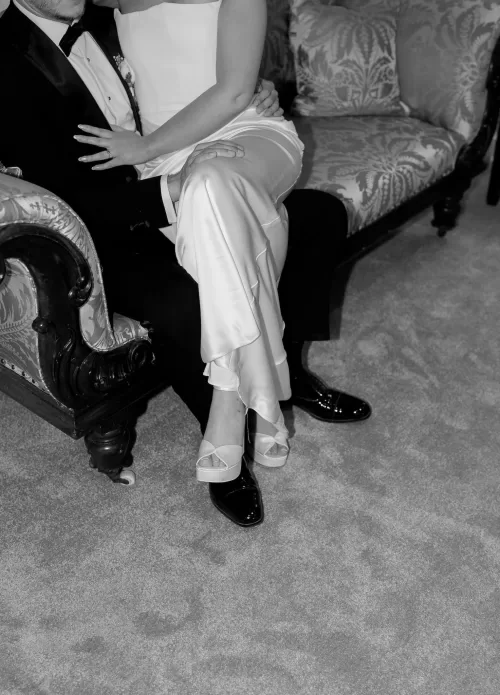
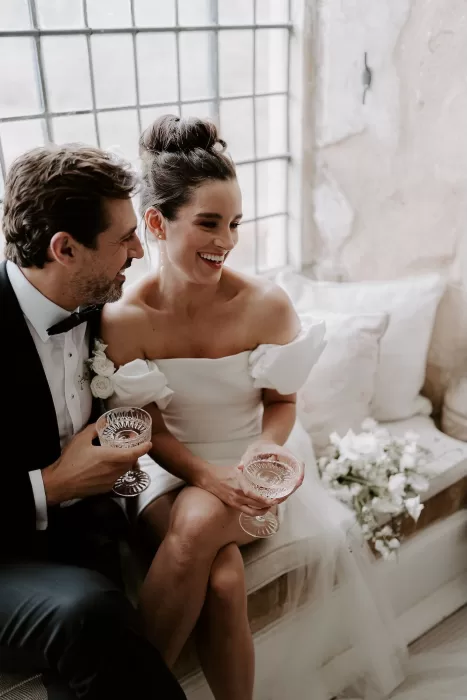
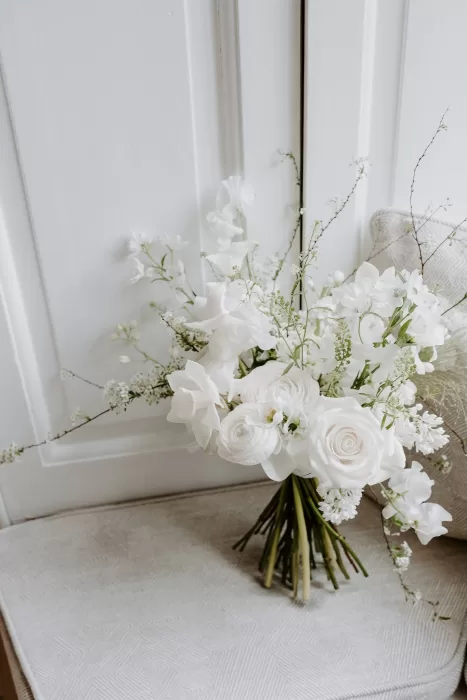
While it’s tempting to splurge on a breathtaking venue, remember that the venue is just one part of your wedding day. All wedded couples agree when they reflect back on their special day, it’s the celebration of your love with family and friends that truly matters. Prioritise the elements that are most important to you and be willing to make compromises on less critical aspects to stay within your budget.
3. Evaluate the Services and Amenities
As you envision your perfect wedding day, consider what venue services and amenities would make for truly unforgettable memories, and what are just practical for a smooth stress free experience. What comforts and conveniences are important to you? Do you want the whole venue to yourselves? Is a luxurious bridal suite a must-have, or perhaps a beautiful pool where guests can relax? Do you envision a seamless experience with in-house services, or would you prefer to bring in your own vendors?
Reflect on the elements that will enhance your celebration—whether it’s the availability of child-friendly spaces, accessibility for all guests, or the option for a weekend-long stay with exclusive use of the venue. These features not only contribute to the overall ambiance but also ensure that your stay runs smoothly.
Accommodation
Guest Capacity: Understand the venue’s capacity for both your ceremony and reception to ensure it can comfortably accommodate your guest list.
Overnight Accommodation: Check the capacity for any overnight guests if the venue offers on-site accommodation.If not, the venue will often be able to recommend nearby accommodation which would be suitable for you and your guests.
Minimum Stay Requirements: Some venues, particularly those in popular tourist destinations, may have minimum stay requirements, especially during peak seasons. Make sure you understand these terms and whether they align with your plans and budget.
Exclusivity: Understand whether the venue offers exclusive use, meaning you and your guests will be the only ones at the venue during your stay. This can provide privacy and a more intimate experience but may come at a higher cost.


Comfort and Accessibility
Bridal Suite and Changing Areas: Ask if the venue provides a dedicated bridal suite or changing areas for the wedding party. These spaces can be essential for getting ready, relaxing, and storing personal items throughout the day.
Child-Friendly Amenities: If you expect children to attend, check whether the venue is child-friendly. Ask about amenities like high chairs, children’s menus, babysitting services, or play areas to keep younger guests entertained and well behaved!
Disabled Access: Ensure the venue is accessible for guests with disabilities. This includes ramps, elevators, accessible restrooms, and seating areas. If you have guests with specific mobility needs, it’s important to confirm that the venue can accommodate them comfortably.
Catering Options
Menu Customisation: Enquire about the catering services provided by the venue. Can they offer a menu that reflects your tastes, showcases local cuisine, or cater for special requests? Ensure they can accommodate any dietary restrictions for you and your guests..
Additional Meals: Beyond the main wedding dinner, you might need the venue to provide catering for other events during your stay, such as a welcome dinner, rehearsal dinner, brunch, or casual meals for guests throughout the weekend.
Bar services: Check if the venue offers a licensed bar and discuss with them the range of beverage options to ensure it matches your tastes. Find out if there are any corkage fees if you plan to bring your own alcohol.
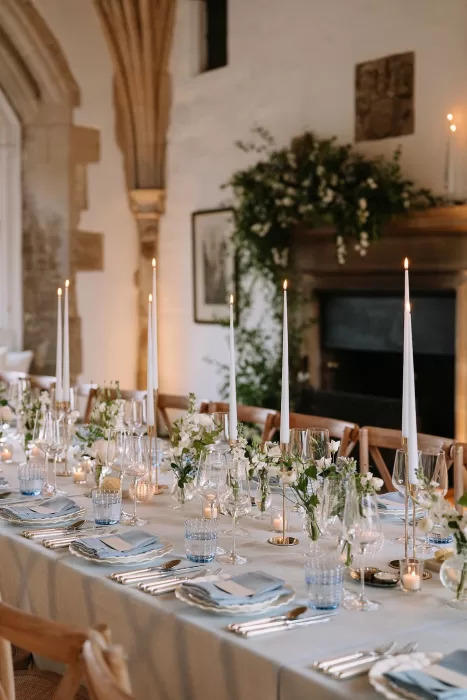

Entertainment and Additional Services
In-House Services: Some venues provide in-house services such as wedding planners, decorators, photographers, florists, and entertainment, which can simplify the planning process and ensure a cohesive look and feel throughout your wedding. These services will usually be covered in the venue’s brochure.
Outdoor Amenities: If your venue offers outdoor spaces, consider amenities like fire pits, outdoor seating areas, or BBQ facilities. These can be great for pre- or post-wedding gatherings or for guests to enjoy during their stay.
Pools and Hot Tubs: If the venue offers a pool, hot tub, or sauna, these amenities can enhance the overall experience for you and your guests, providing opportunities for relaxation before or after the wedding day.
Spa Services: Some venues may offer on-site spa services, such as massages, facials, or beauty treatments. This can be a wonderful perk for the bridal party and guests looking to unwind.
Fitness Facilities: Check if the venue has a gym or fitness facilities, which can be a bonus for guests who want to stay active during their stay.
Logistics and Practical Considerations
Parking and Transportation: Ensure there is adequate parking available for your guests, or if the venue provides shuttle services. If parking is limited, you may need to arrange transportation from nearby hotels or parking areas.
Local Vendors and Restrictions: Some venues have preferred vendor lists or restrictions on outside vendors. Make sure you understand these policies and whether they align with your vision and budget.
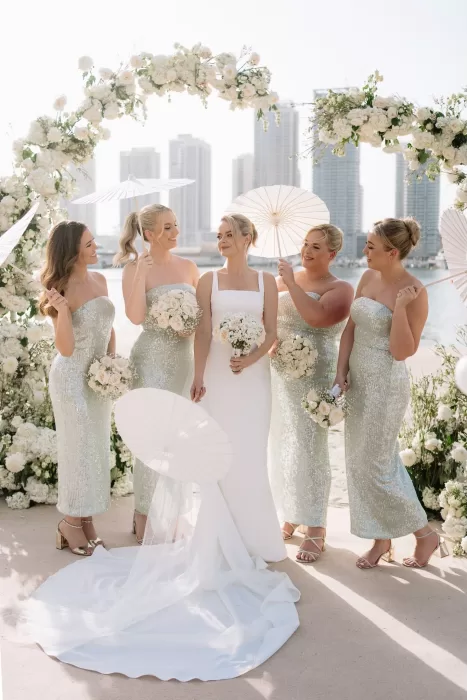
4. Season and Weather Considerations
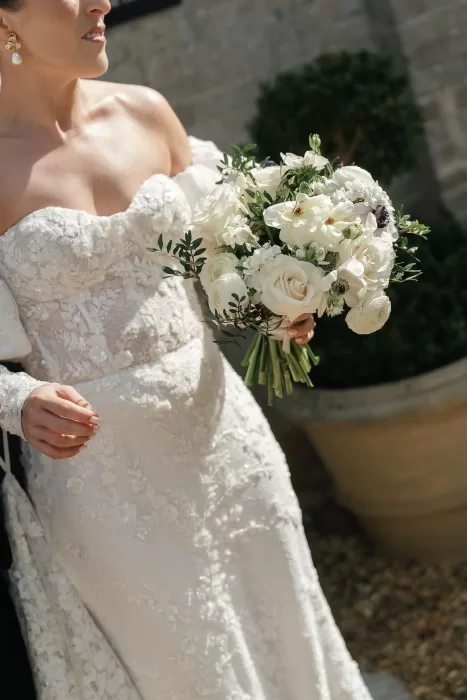
Choosing the right time of year for your destination wedding is crucial to ensuring you get the most out of your stay and celebration. The season you get married can significantly impact not only the weather but also the availability of venues, the cost of services, and the overall experience for you and your guests.
Research Climate Trends: Start by researching the climate and weather patterns of your chosen destination throughout the year. Understanding the typical conditions during different seasons can help you avoid extreme weather, such as hurricanes, monsoons, or intense heat. We’d recommend looking at websites like Weather.com, AccuWeather, and Holiday Weather to understand historical weather data that can guide your decision.
Consider Peak Tourist Seasons: Peak tourist times often coincide with the best weather, but they can also lead to higher prices and limited availability for venues and accommodations. If possible, consider planning your wedding during the “shoulder seasons”—just before or after peak tourist times. This can offer a balance of good weather, lower costs, and fewer crowds. Tools like Google Trends can help you gauge the popularity of a destination during different times of the year.
Foreign Currency: If the country you are travelling to uses a different currency, don’t forget to factor in exchange rates, which can fluctuate over time and affect your wedding costs. Paying up front will remove this risk, but equally paying after booking could result in the cost being less if exchange rates move favourably. Additionally, be sure to ask the venue about any local taxes, service charges, and other fees that might not be included in the initial quote.
Vendor and Accommodation Availability: Keep in mind that during peak seasons, not only will venues be in high demand, but so will vendors. Additionally, guests might find it more difficult to book flights or accommodations during these busy times. Booking well in advance—often 12-18 months before your wedding date—can help secure the best rates and availability. Websites like Skyscanner and Google Flights can help you monitor flight prices and set alerts for the best deals.
Indoor or Covered Alternatives: Even in paradise, the weather can be unpredictable. It’s essential to ensure that your venue has a suitable indoor or covered alternative for your ceremony and reception. Whether it’s a purpose built indoor space, a marquee, or a pavilion, having a backup plan will give you peace of mind. When visiting or researching venues, ask about and ask to see these alternative spaces and consider how they could fit your wedding theme.
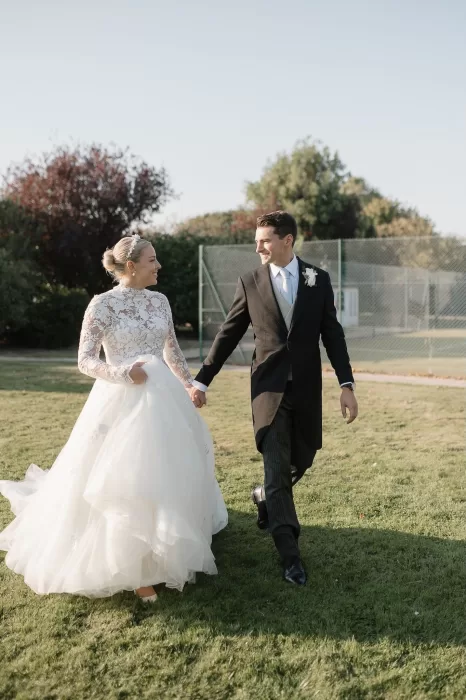

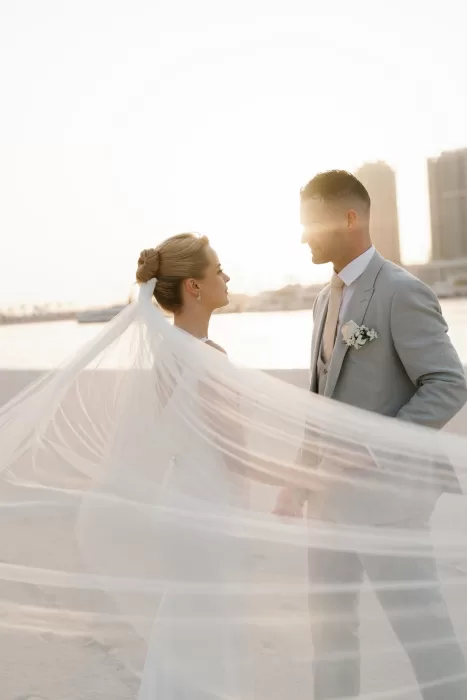
Lighting and Sunset Times: Research the sunset times for your wedding date, especially if you’re planning an outdoor ceremony or photoshoot. “Golden hour”—the period just before sunset—offers beautiful lighting for photography. Websites like Sunset and Sunrise can provide exact sunrise and sunset times for any location on your wedding date.
5. Understand the Legal Requirements
When selecting a destination wedding venue, it’s crucial to understand the legal requirements if you are getting legally married in a foreign country. These requirements can vary significantly from one destination to another and can influence your choice of venue and the overall planning process. Being well-informed about these legalities early on will help ensure that your wedding day proceeds without any unexpected complications.
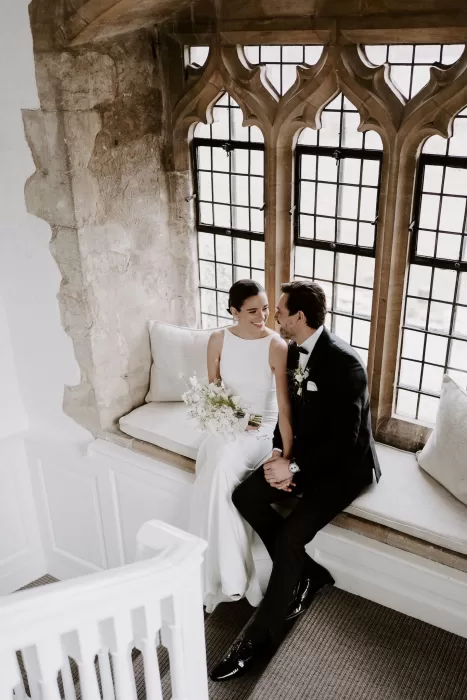
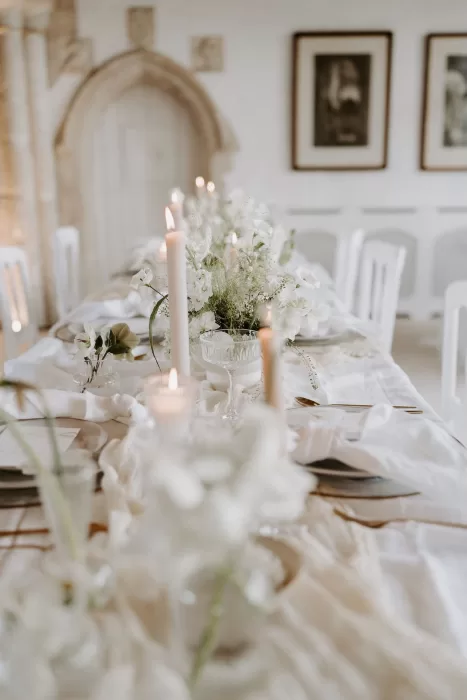
Residency Requirements: Some countries require you to be in the country for a specific number of days before the wedding ceremony. For example, France typically requires couples to be residents for at least 40 days, while Italy often requires just a few days. Understanding these residency requirements is essential, as it could impact your travel plans and accommodation needs. Make sure the venue you choose aligns with these requirements or offers flexibility.
Documentation: Different countries require various types of documentation to legally marry, such as birth certificates, passports, proof of single status, and sometimes even divorce decrees if applicable. Some countries may also require these documents to be translated into the local language and notarised. Before choosing a venue, ask the venue or its recommended wedding planner if they can assist you in navigating the specific legal requirements for marriage.
Witness Requirements: Some countries mandate that you have a certain number of witnesses present at your wedding, who may need to be local residents or provide their identification.
If the legal process in your destination is too complex or uncertain for you, some couples choose to have a legal ceremony in their home country before or after the destination wedding. This allows you to focus on the symbolic and celebratory aspects of your wedding abroad without the stress of legalities. If you opt for this, ensure that your venue can accommodate your needs and that your guests are aware of your plans.
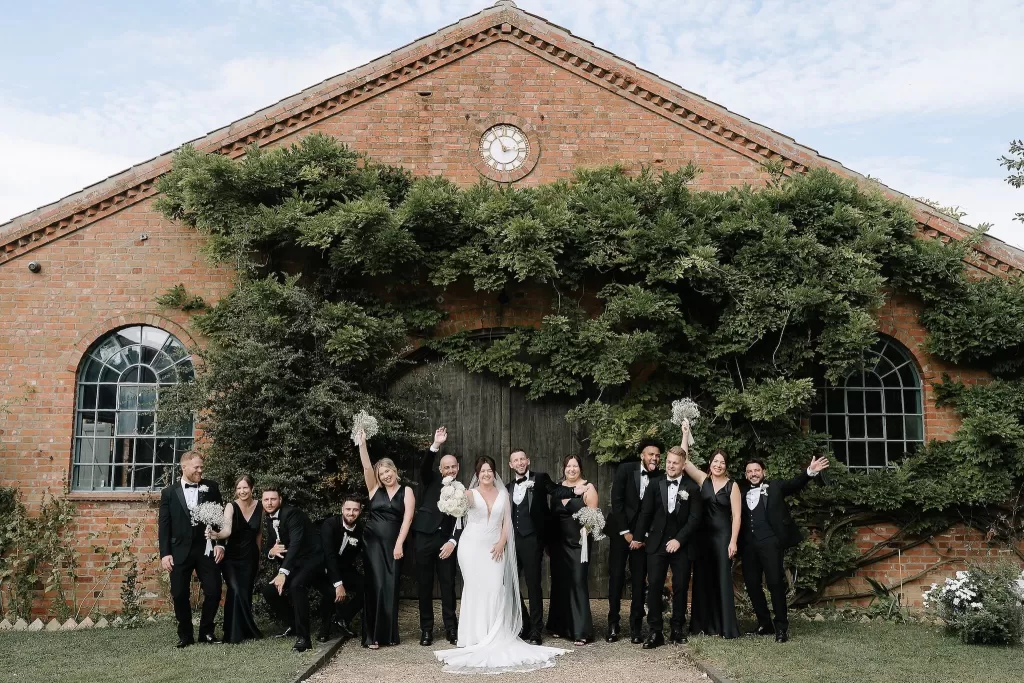
6. Visit the Venue in Advance
In our experience, nothing beats visiting the venue in person before making your final decision. This allows you to get a real feel for the space, meet with the venue coordinators, and address any concerns that may arise. Seeing the venue firsthand can make a real difference vs. seeing the venue online and you can ensure that it meets all your expectations.
Physical Visits
Schedule Your Visit During a Similar Season: If possible, plan your visit during the same season as your wedding. This will give you a better sense of the weather, lighting, and overall ambiance at that time of year.
Check the Surrounding Area: Explore the area around the venue. Consider the proximity of hotels, restaurants, and other amenities for you and your guests. If the venue is in a remote location, check the availability of transportation and other logistics.
Meet Key Vendors at the Venue: Arrange to meet with key vendors such as the caterer, florist, or photographer while you’re at the venue. Seeing how they interact with the space can give you insights into how well your vision can be executed.
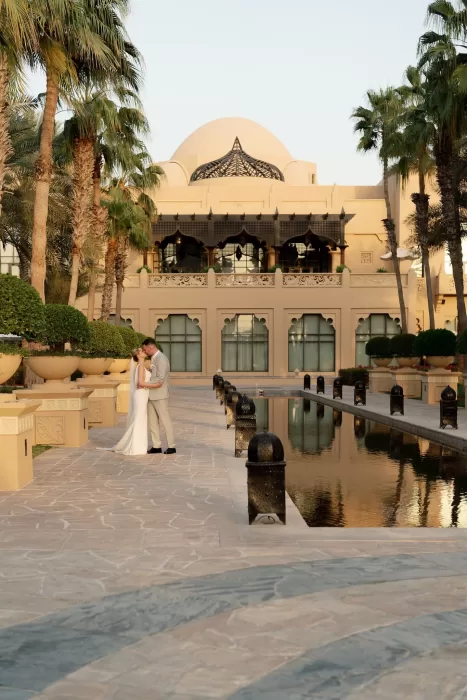
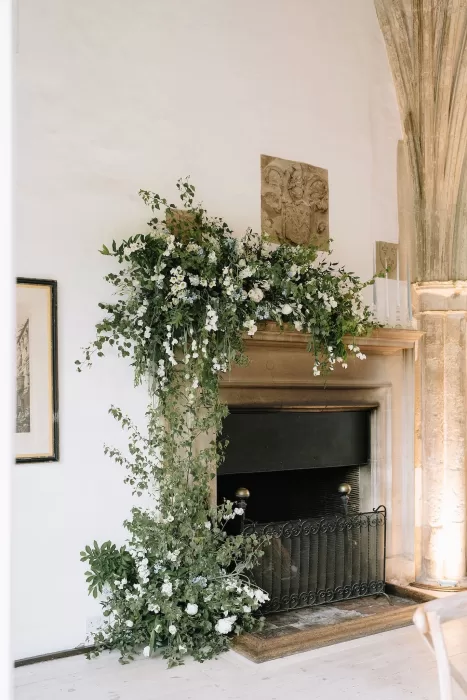
Online Resources
Virtual Reality Tours: Some venues offer virtual reality (VR) tours that provide an immersive experience, allowing you to explore the venue as if you were there. Platforms like Matterport offer 3D tours that can give you a comprehensive view of the space.
Video Conferencing: Use video conferencing tools like Zoom to have a live virtual tour with the venue coordinator. This way, you can ask questions in real-time and request to see specific areas in more detail.
Online Venue Reviews and Forums: Websites like TripAdvisor provide reviews and insights from other couples who have used the venue. Reading these can offer valuable perspectives and help you spot any potential red flags.
Whether in person or virtually, thoroughly exploring your potential venue will give you the confidence to make an informed decision, ensuring your wedding day unfolds just as you’ve envisioned.
Conclusion
Once you’ve considered all of the above and sufficiently researched your shortlisted destinations and venues, you’ll be ready to make your decision.
Choosing the perfect destination wedding venue is arguably the most significant choice of the planning process, but by ensuring you’ve considered all of the above areas and using the support of your online research and venue or planners expert local knowledge, you can find a location and a venue that will bring to life the wedding of your dreams. Stay true to your vision and enjoy the process!
